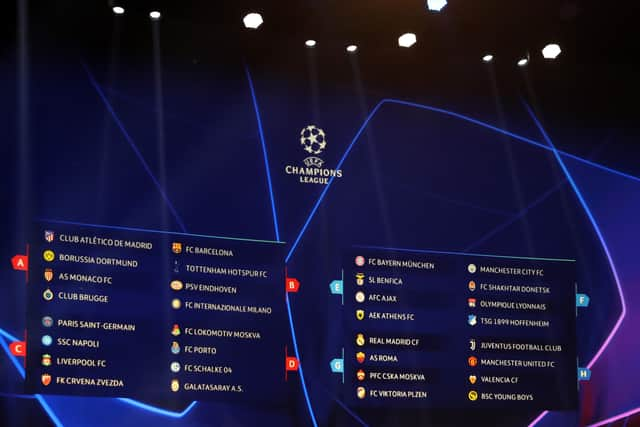How complicated new Champions League format will affect Chelsea, Spurs and Arsenal next season
and live on Freeview channel 276
London clubs including Arsenal, Chelsea and Tottenham Hotspur are set to be affected by big and controversial changes to the Champions League format.
UEFA has confirmed a new look to the competition which will increase the number of clubs involved to 36, potentially good news for clubs in the capital including West Ham United and Brentford that may be hoping for spells on the biggest stage in years to come.
Advertisement
Hide AdAdvertisement
Hide AdWhile adding more sides, the Champions League will scrap the familiar group stage layout for a complicated 'Swiss System' which takes a good minute for football fans to get their heads around.
The changes will come into place for the 24/25 Champions League competition, meaning the qualification changes will be relevant from next season.
LondonWorld breaks down what on earth is going on, and when fans of London clubs need to start thinking about a new look Champions League.
What is the Swiss System and how is it affecting the Champions League?
With the Champions League expanding to 36 teams - four more than at present - the early stages of the competition are changing to help facilitate that.
Advertisement
Hide AdAdvertisement
Hide AdInstead of the small group stages, all 36 teams will enter a single league table. Each club will play eight fixtures in this league, four fixtures at home and four fixtures away.


It is expected that to make these matches, UEFA will create four pots of nine teams with every club playing two teams from each pot. What's the point, you ask? We're more likely to get the biggest sides playing each other early on.
From this point, the clubs finishing in the top eight of the table will go through to the knockout stages.
The next sixteen in the league, positions 9th to 24th, will then go through to a two-legged play-off round to make it into the last 16. Clubs that finish below 24th in the original league table are eliminated for good, so no Europa League fallback.
Advertisement
Hide AdAdvertisement
Hide AdOnce the knockout stages begin, the Champions League will proceed as we currently know it.
How will this affect Arsenal, Spurs, Chelsea and other London sides?
For any side involved in the Champions League, this new format will mean more fixtures in an already cramped fixture list.
All clubs will play an extra two games to the previous schedule and 16 sides will then have the two-legged league play-off on top.
Football fans will also be thinking that adding four extra teams to the competition may free up another Premier League qualification spot, but it's a little more complicated by that.
Advertisement
Hide AdAdvertisement
Hide AdOne of the four extra places will go to a team from the Champions Path qualification - the route taken by the winners of the less wealthy leagues in Europe.


Another of the slots will go to a team from the country placing fifth in UEFA's national association ranking, otherwise known as the country coefficients. At the moment, this is France.
The two remaining spaces will go to an extra team from the two countries that post the best-combined finish in UEFA competitions. If the format change was taking place next year, it would mean the fifth-placed team in the Premier League would qualify, alongside another club from the Netherlands.
What has UEFA said?
UEFA President Aleksander Čeferin, said: “UEFA has clearly shown today that we are fully committed to respecting the fundamental values of sport and to defending the key principle of open competitions, with qualification based on sporting merit, fully in line with the values and solidarity-based European sports model.
Advertisement
Hide AdAdvertisement
Hide Ad“Today’s decisions conclude an extensive consultation process during which we listened to the ideas of fans, players, coaches, national associations, clubs and leagues to name but a few, with the aim to find the best solution for the development and success of European football, both domestically and on the international club stage.
“We are convinced that the format chosen strikes the right balance and that it will improve the competitive balance and generate solid revenues that can be distributed to clubs, leagues and into grassroots football across our continent while increasing the appeal and popularity of our club competitions."
Comment Guidelines
National World encourages reader discussion on our stories. User feedback, insights and back-and-forth exchanges add a rich layer of context to reporting. Please review our Community Guidelines before commenting.
